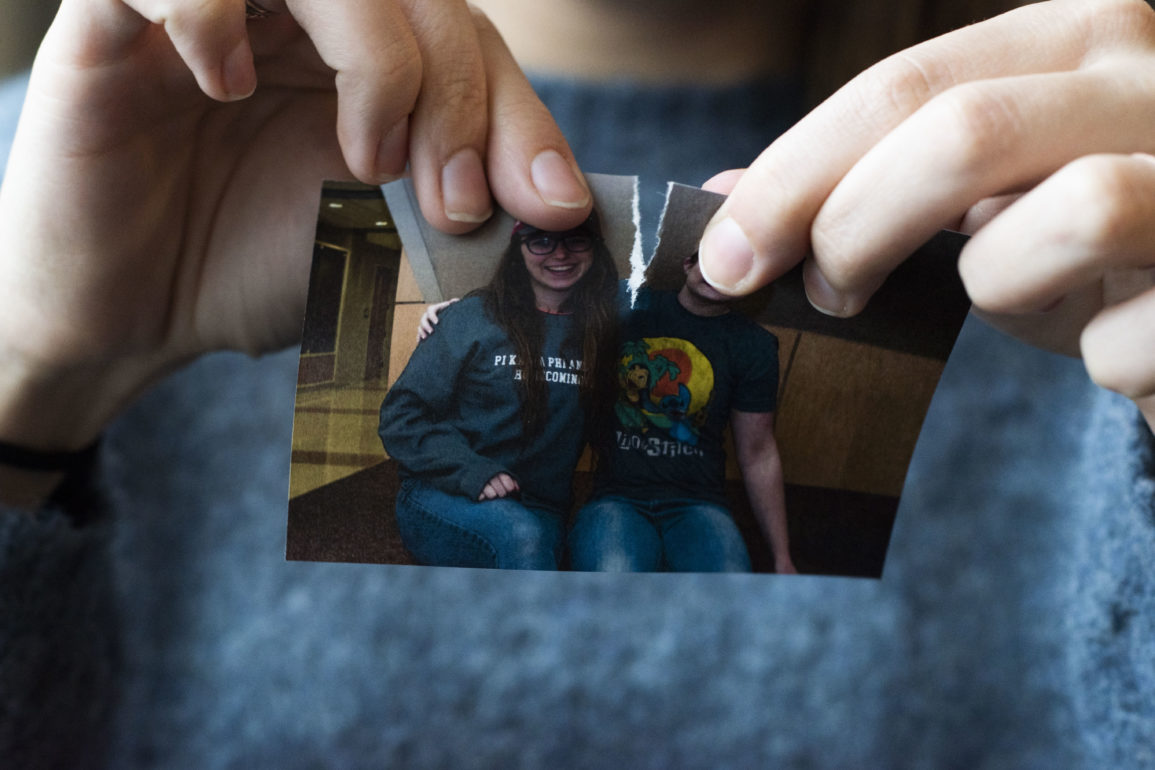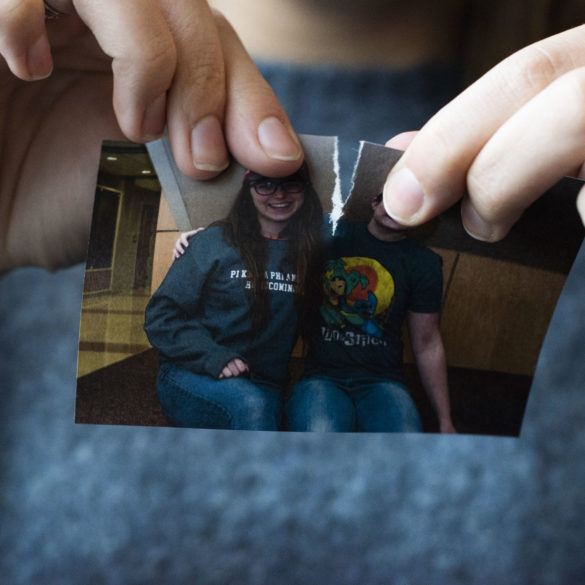While it can be difficult to recognize when a friendship is unhealthy, leaving these relationships behind can help prevent lasting mental health effects.
Julia Perney, now a 21-year-old Marian University alumna, became friends with three girls from her class during their first year of high school. They knew everything about one another, and she felt like she belonged. They were “your typical freshman group of best friends,” she says.
But over the next two years, Julia started noticing that her friends sometimes wouldn’t take her seriously, or they’d pressure her into things she didn’t want to do. Julia says their friendship was like “having a devil” on her shoulder. They would ask her questions about her religious beliefs, just to laugh at her answers.
According to Abu Sayed Zahiduzzaman’s book Toxic Relationship, a toxic friend might put you down, manipulate you, publicly embarrass you, or make you feel poorly about yourself. These people might be apathetic about how their actions affect you, ignore your needs, and be overall selfish in the friendship.
Both supportive and toxic relationships can affect how people view themselves and their other friendships. Ball State University sociology professor Mellisa Holtzman says any close, long-term relationship will shape an individual, either positively or negatively. Being on the receiving end of toxic behavior can cause trust issues and self-doubt, harming a person’s self-efficacy and their ability to make good decisions. These long-term effects can alter the ways people see themselves and interact with others.
According to Toxic Relationship, when someone thinks of a friendship as a competition, the relationship dynamics shift. For example, the friendship might become a hierarchy, with the toxic friend using manipulative behaviors to stay above the other friend. The person might gossip, act differently depending who they’re with, or make themselves look better by making others look bad.
Over time, Julia realized the warning signs had always been there. But she always focused on the good moments.
They were the popular girls, and while some students idolized them, Julia knew them on a personal level. “They simply did what they wanted to who they wanted,” she says. She tried to stand up to them multiple times, telling them to stop making fun of her. But they would either say it was a joke or say Julia was being dramatic.
One day when Julia was a sophomore, she was riding in the car with one of the girls, along with someone else she didn’t know well. They were driving around back roads in Michigan City, Indiana, when Julia agreed to smoke marijuana. It wasn’t her first time, but she hesitated because she knew she didn’t like it. When the girls laughed at her initial choice not to smoke, telling her to let go and live a little, Julia gave in.
This time, smoking gave Julia an extreme reaction. As she fell in and out of consciousness and hallucinated, she begged her friend to take her to the hospital. The girls refused, not wanting to get in trouble.
Eventually, Julia’s brother came and took her home, and her mom took care of her until the effects wore off.
For the rest of high school, Julia felt lonely and didn’t know how to make new friends. She and her former friends never did address what went wrong, and the girls graduated high school as though they were on good terms. When they see each other now, they exchange a polite “hello” and sometimes small talk. But Julia doesn’t think the friends saw how much they hurt her.
“I became depressed. I lost any sense of who I was. I felt like I had no dignity,” Julia says. “I developed crippling anxiety because I felt like everything I said or did would be judged.”
According to a study by researchers at University of California, Los Angeles, unhealthy relationships can lead to health problems, such as increases in blood pressure and heart rate. A study from the Department of Psychology at University of Miami found a link between a lack of social support and mental health disorders like social anxiety and depression. Holtzman explains that toxic relationships can have long-term effects on how someone views themselves and the world.
For Julia, it became difficult to trust. “It’s hard for me to believe that people will respect my opinions,” Julia says. “It’s hard for me to believe that people aren’t talking about me behind my back for a number of reasons, and it’s hard for me to believe in myself.”
The Ball State Counseling Center provides materials to inform students about the signs of a toxic relationship. These resources can be applied to friendships, as well. The center also provides individual and group counseling sessions.
Cutting off a friend can have a strong mental and emotional impact. According to Toxic Relationship, it’s important to acknowledge that a friendship isn’t healthy, understand what factors negatively affect the relationship, and be able to realize if you are adding any toxicity to the situation. Considering these elements will help determine the healthiest steps to take.
It’s been six years, and Julia still has days when she feels down. She still battles depression. But now she chooses to surround herself with people who lift her up, and she has friends who want the best for her. “I’m not a slave to my past anymore,” Julia says. “I’m free to be whoever I want to be.”




